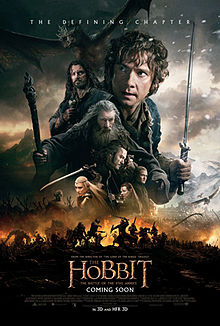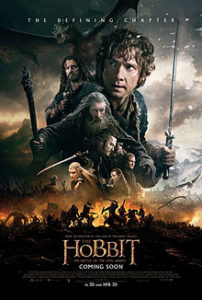 Without a doubt, The Hobbit: The Battle Of The Five Armies is hugely successful, garnering the top spot at the US Box Office among the Christmas movies. And yet, this final installment of Peter Jackson’s Middle Earth saga is not without its critics.
Without a doubt, The Hobbit: The Battle Of The Five Armies is hugely successful, garnering the top spot at the US Box Office among the Christmas movies. And yet, this final installment of Peter Jackson’s Middle Earth saga is not without its critics.
Both Rotten Tomatoes and the Meta Critic, for example, rate the movie as worthy of only three stars. One critic even went so far as to say
A better title for THE HOBBIT: THE BATTLE OF THE FIVE ARMIES would be: ‘Rubbish: The Desolation of Tolkien’.
And this from a Rotten Tomatoes super reviewer:
The Hobbit as a adaptation simply does not have a narrative rich enough to sustain this bloated, distended bore. The chronicle is not deep nor meaningful nor even well-executed, with one exception. At least there is a definitive conclusion.
To be sure, not all reactions were equally negative, and some that were, seem to exist because the critic or reviewer has not forgiven Peter Jackson for a) making three movies out of one book or b) adding characters (and therefore scenes) that weren’t in Tolkien’s work.
Once again I am mindful that movies and books are different media for telling stories. A movie adaptation can not replicate a book, merely putting it in visual form. Novels can do what movies cannot, and movies can do what novels cannot.
Consequently, the two should be viewed and appreciated for what they can do, not criticized for what they are unable to do.
That being said, I would give The Hobbit: The Battle Of The Five Armies four stars. It was not a perfect movie, but it was a very good one.
I was one of the biggest critics of the ending of The Desolation Of Smaug. I thought the defeat of Smaug was the perfect way to end a movie about the dragon holding the entire valley in fear. To end the movie on a cliff hanger seemed manipulative and unnecessary.
Spoiler Alert
The following summary contains spoilers!
Now, after seeing the third installment of The Hobbit, I understand better why Smaug’s defeat belonged in this final film. As in the book, the claims the Men made on the dragon wealth stemmed primarily from the devastation Laketown suffered, counterbalanced by the help they had provided the dwarfs when they set out for the Lonely Mountain. Add in the fact that Bard killed Smaug, and you have a triumvirate that makes the Men’s claims on the dragon fortune seem reasonable and just.
This understanding is crucial to the initial conflict—that of men and elves and dwarfs.
The elves’ claims on some portion of the dwarfs new wealth stems from reasonable compensation, too. They bring much needed supplies to the Laketown people and claim an elf necklace that was taken from them.
Thorin, king of the dwarfs, has succumbed to dragon sickness and will not agree to share the treasure with anyone, even Bilbo, it seems.
Bilbo the burglar has his own plan which he believes will force Throin to do the right thing. It does not, and Thorin nearly kills Bilbo because he took the “heart of the mountain,” a valuable stone owned by the King of the Mountain.
The animosity of the three races against each other ends when the orcs show up with their own plan to take advantage of the end of Smaug. When victory seems possible, a second army of Sauron’s followers enters the foray, and all seems lost.
Thorin, however, becomes the king and leader he had shown himself to be earlier, though it cost him his life. Before he dies, however, he and Bilbo reconcile. How the final victory is secured, I’ll leave for you to discover.
Strengths. Having chosen to add characters and elements to this adaptation of The Hobbit, the writers did a good job using them to add tension. I didn’t find them as intrusive as I did in the first two films. And their threads resolved naturally and even fit into the main plot nearly seamlessly.
For the most part, the main plot was true to Tolkien’s story and concluded in the same way. It’s true that Bilbo was not a central figure in the actual battle (a criticism of some), but that’s the way Tolkien wrote the story. To have Bilbo somehow become the hero of the war would have been a subversion of the original story, and I’m thankful the movie version didn’t go in that direction.
The main strength, in my view, is simply bringing Middle Earth to life. It’s amazing to see Smaug and the elves and Hobbition and Gandalf in living color. Tolkien’s world already felt real, but seeing it depicted on the screen made it live.
My first thought at the end of the movie was, How sad that there will be no more stories set in Middle Earth.
Weaknesses.
My main complaint of The Hobbit: The Battle Of The Five Armies is similar to my complaint of The Desolation Of Smaug: in places the special effects took the story from fantasy to unbelievability. Just because the computer generation could make a think look as if it happened did not make it likely that it could happen.
In other words, there were places—critical places that should have contained high tension—that seemed comic book-ish because of the special effects.
Sadly, those places pulled me from the story and reminded me that some parts of the movie were add-ons from the book. I had to remind myself this format wasn’t attempting to be a novel replication. But I don’t like having to explain to myself during the movie why I should not be put off by something going on on the screen.
Recommendation.
I wish the movie trilogy had trusted Tolkien’s story more, but I enjoyed what Peter Jackson did. I found The Hobbit: The Battle Of The Five Armies to be a satisfying conclusion, and I truly am sorry that there’s not another Middle Earth story to look forward to. It feels like an end of something grand, something epic, and I don’t see another similar fantasy on the horizon. I know I’ll miss these movies and the world to which they transported me.
For lovers of fantasy, for those who have seen the first two Hobbit movies, for anyone who’s read J. R. R. Tolkien’s works, this movie is a must see.
 The opportunity to submit an entry into Spec Faith’s 2015 Winter Writing Challenge has now closed. We’ve received a good number of outstanding stories, some coming in over the weekend.
The opportunity to submit an entry into Spec Faith’s 2015 Winter Writing Challenge has now closed. We’ve received a good number of outstanding stories, some coming in over the weekend.
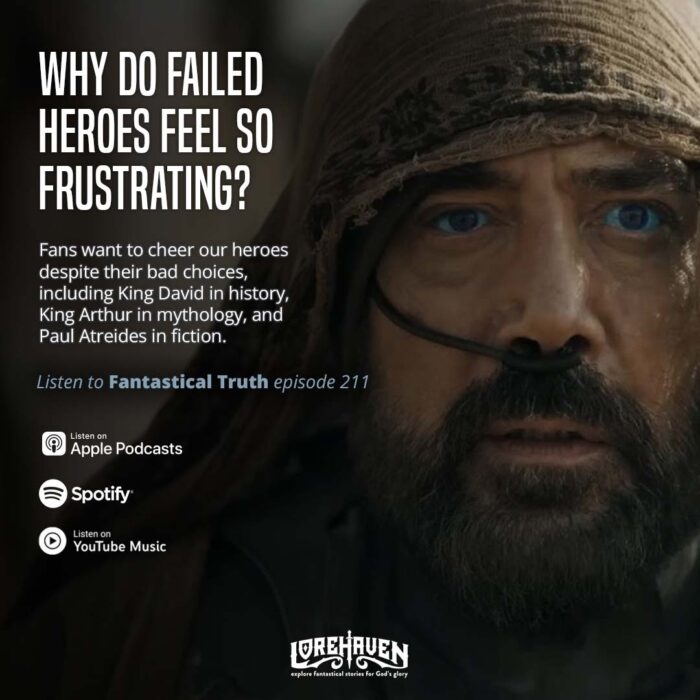

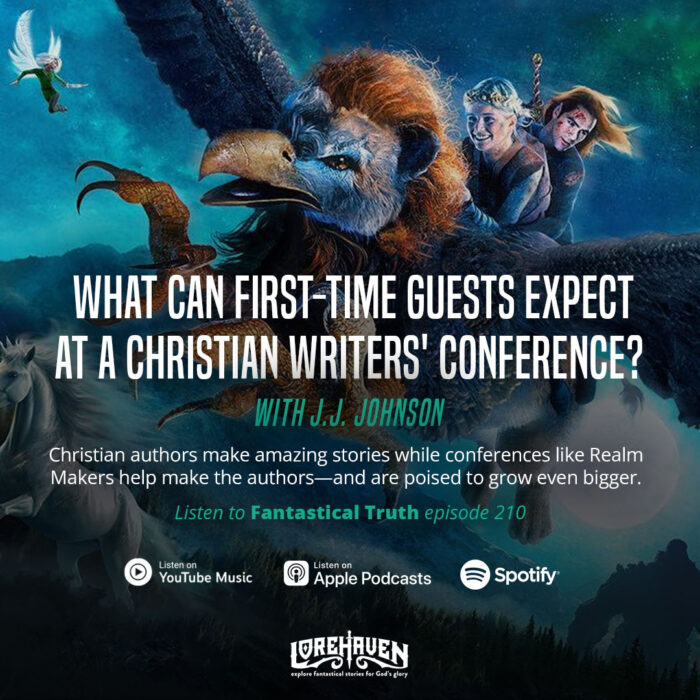






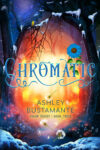



























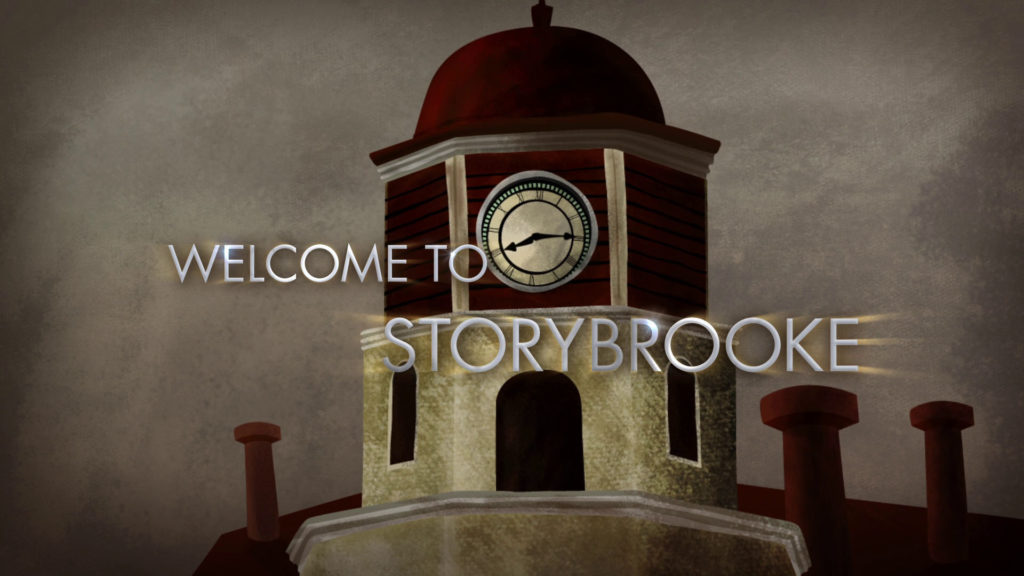
 understand it (something about fairy tales, the modern world, and “Storybrooke”), and at any rate, I was promised Frozen characters.
understand it (something about fairy tales, the modern world, and “Storybrooke”), and at any rate, I was promised Frozen characters.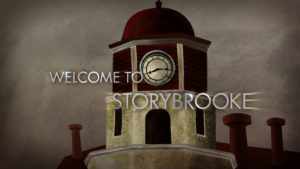




 Even casual readers of SpecFaith know that our articles often explore not just the what or the whether of fantastical fiction, but the whys. Naturally weâre concerned with shallow reasons. Our tagline says, â[We’re] exploring epic [fantastical] stories for Godâs glory.â We make this our goal because this is not what we by default desire. We have other reasons for exploring (or loving, or making) fantastical stories â good reasons, but smaller reasons.
Even casual readers of SpecFaith know that our articles often explore not just the what or the whether of fantastical fiction, but the whys. Naturally weâre concerned with shallow reasons. Our tagline says, â[We’re] exploring epic [fantastical] stories for Godâs glory.â We make this our goal because this is not what we by default desire. We have other reasons for exploring (or loving, or making) fantastical stories â good reasons, but smaller reasons.


